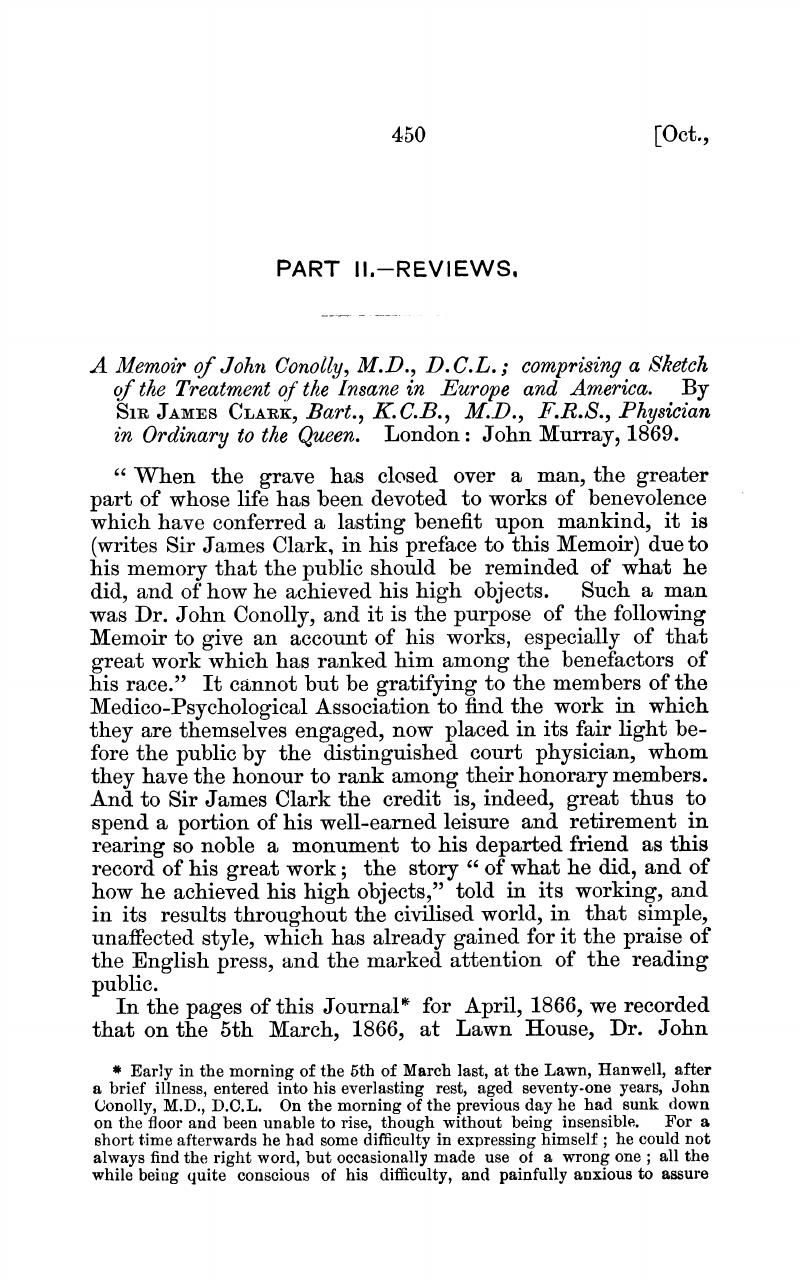No CrossRef data available.
Published online by Cambridge University Press: 19 February 2018

∗ Early in the morning of the 5th of March last, at the Lawn, Hanwell, after a brief illness, entered into his everlasting rest, aged seventy-one years, John Conolly, M.D., D.C.L. On the morning of the previous day he had sunk down on the floor and been unable to rise, though without being insensible. For a short time afterwards he had some difficulty in expressing himself; he could not always find the right word, but occasionally made use of a wrong one; all the while being quite conscious of his difficulty, and painfully anxious to assure those around that he was perfectly sensible of their presence and of all that was said. It was very characteristic of that careful attention to proprietry of language, as well as of the extreme courtesy which distinguished him throughout life, that he grieved and apologised for his inability to express himself correctly, even when he was expressing himself quite well. His longing desire was to be at rest, and his earnest hope, that he might not recover from this attack as he had recovered from former like attacks. “I have only one wish,” he exclaimed—“to die; but God's will be done.” In the evening he had quite recovered his power of expression, spoke cheerfully, and uttered many kindly wishes, still praying that he might not recover, though fearing that he might. At three a.m. of the following morning he was attacked with paralysis of the right side and violent epileptiform convulsions, which followed one another in quick succession for two hours; he was quite insensible, and when the convulsions ceased he passed gently away, as one who falls to sleep after a long day's labour. His body is buried in the Kensington Cemetery at Hanwell. His name liveth for evermore. —Journal of Mental Science, April, 1866.Google Scholar
eLetters
No eLetters have been published for this article.